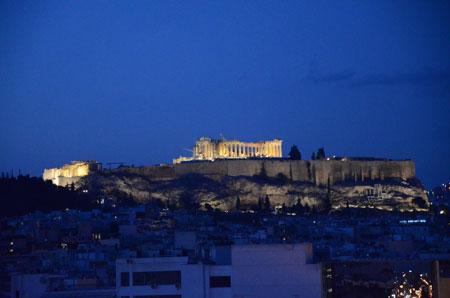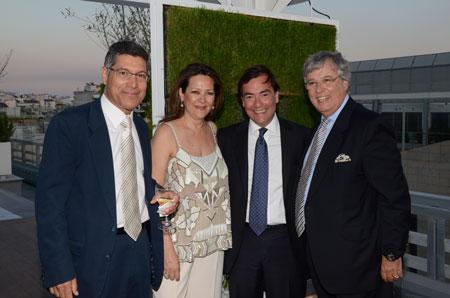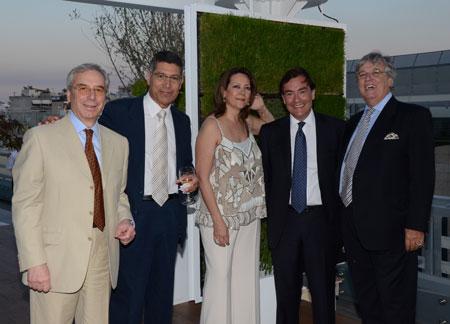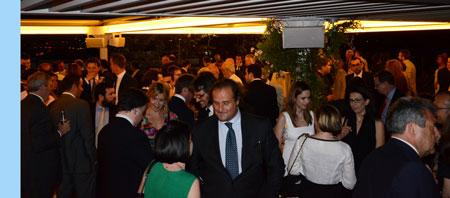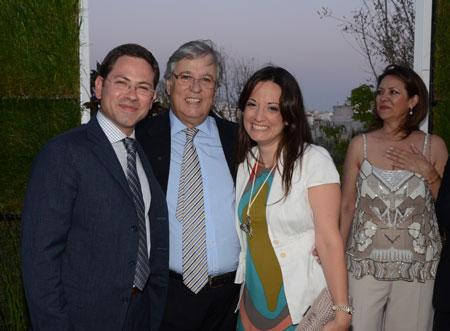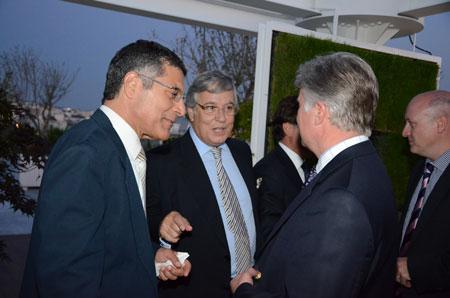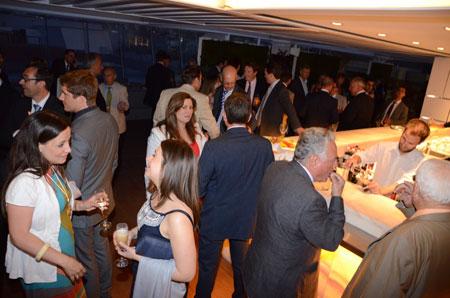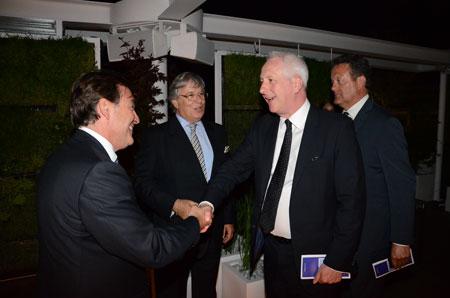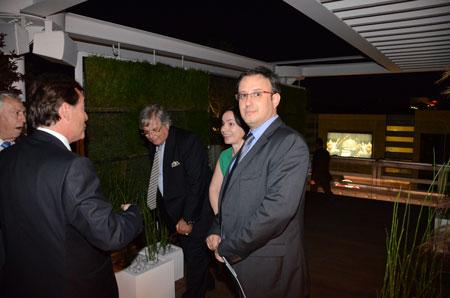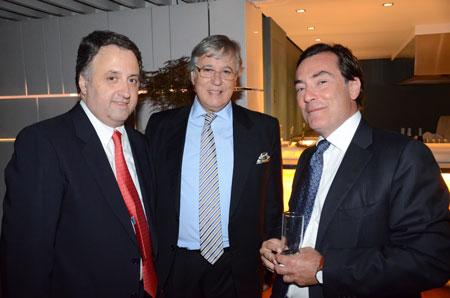KEEPING OUR CLIENTS
INFORMED
The news items included in these pages have been created in cooperation with partner sites and written communications recieved at our offices from our colaborators and partner links.
Eurorisk S.A. is not liable for the validity of the information given since it is reproduced and copied from other internet sources.
New Website coming onLine!!
New Website coming onLine!!
The new Website is now coming online! New content and new layout! I hope you like!

AMERICAN CLUB CIRCULAR (26/6/2012)
AMERICAN CLUB CIRCULAR (26/6/2012)
JUNE 25, 2012 : CIRCULAR NO. 18/12
TO MEMBERS OF THE AMERICAN CLUB
At the Annual Meeting of the Members of the board of the American Club which took place in New York last Thursday, June 21, 2012, Mr. Cliffe F. Laborde of Laborde Marine Management, LLC was elected as a Director of the American Club for the forthcoming twelve month period. Mr. Laborde was warmly welcomed to the Board in anticipation of his making a valuable contribution to the Club’s affairs in the future.
The Annual Meeting also noted the retirement of Mr. Calvin W.S. Cheng of Eastmark Associates, Inc. and Mr. Paul Sa of Standard Shipping, Inc. Both were thanked for their participation in directing the Club in recent years and were wished the very best for the future. In particular, it was noted that Mr. Sa had been a Director for some twenty years and, between 1997 and 2007, its Chairman. His exemplary service in this regard was acknowledged with particular appreciation.
At the Annual Meeting of the Club’s Directors which took place in immediate succession to that of the Members, Mr. J. Arnold Witte of Donjon Marine Co., Inc. and Mr. Markos Marinakis of Marinakis Chartering Inc., were re-elected as, respectively, Chairman and Deputy Chairman of the Club. Mr. Joseph E. M. Hughes, Chairman and CEO of the Club’s Managers, Shipowners Claims Bureau Inc., was re-elected as Secretary to the Board.
eurorisk s.a.
Keeping our clients informed.
Lloyd's REPRESENTATIVES DRINKS (10/6/2012)
Lloyd's REPRESENTATIVES DRINKS (10/6/2012)
The Lloyd's Representatives Drinks at the Onasis Cultural Centre
A Posidonia 2012 event
The event held at the Onasis Cultural Centre on Syngrou Avenue in Athens. On the roof garden, with a cool night breeze and a lovely view.
- Image No2: Nicolas Apostolopoulos (far Right), Manos Lorenzos (middle Right), Maria Kouliga (Middle left)
- Image No5: Donatos Apostolou (Left), Nicolas Apostolopoulos (Middle), Electra Apostolopoulou (Right)
- Image No6: Nicolas Apostolopoulos
- Image No8: Manos Lorentzos (Left), Nicolas Apostolopoulos (Middle Left)
- Image No9: Spiros Nicolas Apostolopoulos
- Image No10: Vassilis Tsakos (left), Nicolas Apostolopoulos (Middle), Manos Lorentzos (right)
eurorisk s.a.
Keeping our clients informed.
AMERICAN CLUB CIRCULAR (28/6/2012)
AMERICAN CLUB CIRCULAR (28/6/2012)
CIRCULAR NO. 19/12
IRAN SANCTIONS-EU COUNCIL REGULATION 267/2012-EXPORTS OF CRUDE OIL AND PETROLEUM PRODUCTS FROM IRAN - PROHIBITIONS WITH EFFECT FROM JULY 1, 2012. PROHIBITIONS ON INSURANCE COVERAGE AND TRANSPORTATION.
Please note that members of the American P&I Club have previously been informed through the American Club Circular No. 07/12 of January 26, 2012, and by the International Group, of the impact of EU Iran sanctions prohibiting the transportation of cargoes of crude oil and petroleum products originating from Iran, and on P&I cover therefor once the EU prohibitions become effective on July 1, 2012.
While there has been some speculation in the media of a possible deferral of the implementation date for the prohibitions, the Council of the European Union issued a press release on the 25th of June confirming that the exemptions relating to pre-January 23, 2012 contracts for importing and transporting Iranian oil and the provision of P&I insurance cover for the transport of Iranian oil by EU regulated insurers will cease, and such activities will be prohibited (as provided for under the EU regulation), with effect from July 1, 2012.
Although the American Club is not an EU-regulated insurer and not subject to the EU’s Iran sanctions, the US sanctions against Iran, to which the American Club is fully subject, like the EU prohibitions, generally prohibit the American Club from providing P&I coverage for the transportation of petroleum and petroleum products from Iran, irrespective of the domicile or identity of its Members or the destination of the cargo. Members who are US persons are prohibited by US sanctions from trading with Iran.
Although the EU prohibition referenced above, which takes effect on July 1, 2012, would not apply to, and thus would not prohibit, American Club Members domiciled outside the EU, or those not subject to EU laws and regulations, from transporting crude oil and petroleum products from Iran as long as such cargoes were not destined for the EU, insurance coverage therefor would not be available from EU-based insurers as of July 1, 2012. Insurance coverage for crude oil and petroleum product shipments is also not available from the American Club pursuant to US Iran sanctions laws.
EU-domiciled Members are encouraged to exercise due diligence to ensure that they do not transport oil and petroleum products from Iran in violation of the foregoing EU prohibition, and are reminded that the American Club also does not provide P&I coverage for such transportation.
Such preventive measures and due diligence are necessary since any voyage or trade performed in violation of the EU and US prohibitions may constitute risks excluded by the American Club’s Rules: See Class I, Rule 3, Section 1.3 through 1.5.
Trade and insurance prohibitions
Pursuant to the provisions of Articles 11 1 (d) and 12 (2) of the EU regulation, EU-based insurers will be prohibited from providing cover to any insureds in respect of voyages transporting crude oil or petroleum products if they originate in Iran regardless of whether the final destination of the cargo is within or outside the EU. US sanctions law imposes a similar prohibition on the American Club.
A related EU ban in respect of the transportation of Iranian petrochemical cargoes, and the insurance thereof, entered into force on May 1, 2012. US law imposes a similar prohibition on the American Club. The carriage of such crude oil or petroleum products (which is in any event prohibited for shipowners domiciled within or regulated by the EU and/or the US, but remains permissible for a non-EU and/or non-US domiciled or regulated shipowners (non-US persons) performing voyages outside the EU and/or the US) will constitute risks that are excluded by the American Club’s Rules: See Class I, Rule 3, Section 1.3 through 1.5.
Members who may lawfully continue to transport such cargoes and who wish to do so may make alternative liability insurance or financial security arrangements with insurers or state/sovereign guarantee schemes or other financial providers which are not subject to the prohibitions contained in the EU regulation and under relevant US Iran sanctions laws and regulations. If Members intend to perform such voyages they are recommended to notify the Club in advance of performance and upon completion of the voyage.
Bunkers
As stated in the FAQs, the EU prohibitions will apply not only to the carriage of crude oil and petroleum products as cargo but also to bunker stems of Iranian origin. Consequently it is not just tankers but potentially all vessel types which may be subject to EU trading or insurance cover prohibitions. Where it is known that bunkers intended to be stemmed to a vessel are of Iranian origin, such bunkers should not be loaded to avoid a violation of the EU regulation. Where there is any cause to suspect that bunkers might originate from Iran, or be blended with Iranian oil, Members are strongly recommended to request confirmation prior to stemming bunkers that the bunkers are not of Iranian origin or that such bunkers do not violate relevant prohibitions and, in the absence of such confirmation being received, it would be prudent to request an alternative bunker stem.
The American Club as well as the International Group will continue to engage with the relevant regulatory bodies and to monitor further progress relating to the implementation of these and other sanctions measures impacting on trading and insurance cover and members will be kept updated on developments.
eurorisk s.a.
Keeping our clients informed.
NORTH OF ENGLAND CIRCULAR (04/07/2012)
NORTH OF ENGLAND CIRCULAR (04/07/2012)
North of England Circular 26/2012
CIRCULATED TO ALL MEMBERS, BROKERS AND DIRECTORS
ATTENTION INSURANCE DEPARTMENT
Following the approval of the Financial Report & Statements for the year ended 20 February 2012 by the Board of Directors at their meeting on Friday 18 May 2012, the Managers have taken the opportunity to review release call levels for the open policy years. Having taken into account the stable result for the financial year against a background of continuing difficult market conditions the Managers' assessment is as follows:
2009/2010
The Managers' assessment of release calls is Nil
2010/2011
The Managers' assessment of release calls is Nil
2011/2012
The Managers' assessment of release calls is 10% of Estimated Total Premium
2012/2013
The Managers' assessment of release calls is 20% of Estimated Total Premium
These release call levels will apply with immediate effect.
AA WILSON
JOINT MANAGING DIRECTOR - North Insurance Management Limited
As Managers on behalf of the North of England P&I Association Limited
eurorisk s.a.
Keeping our clients informed.
NATO SHIPING CENTRE PIRACY UPDATE (04/07/2012)
NATO SHIPING CENTRE PIRACY UPDATE (04/07/2012)
Overview
During the reporting period of 28 June to 04 July 2012 one Pirate Attack Group was disrupted in the region. Details of all alerts can be found on NSC Alert details webpage: http://www.shipping.nato.int/Pages/AllAlerts.aspx
Activity over the past two weeks shows that pirate activity can still take place during the South-West Monsoon and that pirates are operating closer to shore to avoid severe conditions further out to sea. PAGs (Pirate Attack Groups) will likely continue to focus their efforts in the Northern Arabian Sea (NAS), Gulf of Oman (GOO) as well as in the Gulf of Aden (GOA), Southern Red Sea (SRS), and coastal waters.
Specific areas of suspected and known PAG locations can be found on the PAG map: http://www.shipping.nato.int/operations/OS/Pages/PAGmap.aspx
There have been a number of incidents recently reported to Counter Piracy organisations in the High Risk Area involving small craft approaches to Merchant Vessels. Although these incidents may appear to be piracy related, the majority are not, and have been assessed as non-piracy related activity common to the pattern of life in the area. This can include fishing, small vessel trade, smuggling and other local traffic.
Please note that, if we assess an approach or incident to be piracy, then we will issue relevant warnings and alerts, keeping the merchant shipping community fully informed at all times.
During the South-West monsoon between June and September, sea conditions in much of the High Risk Area (HRA) are expected to be largely unfavourable to small boats such as skiffs. These may move to operate in less-exposed or coastal areas such as the Gulf of Aden or Bab-al-Mandeb.
Please remain vigilant at all times.
If an incident occurs, Masters are advised to report immediately to UKMTO via telephone at +971 50 55 23215, providing as much information as possible about the incident. This will ensure information is quickly passed to shipping in the area.
If Masters are able to take pictures and/or video of the suspicious activity safely, please provide these via email to UKMTO at ukmto@eim.ae, NATO Shipping Centre (NSC) at info@shipping.nato.int or the Maritime Security Centre Horn of Africa (MSCHOA) at postmaster@mschoa.org. This information will be used by Counter Piracy forces to help combat piracy. Pictures supplied from a recent attack on a merchant vessel led to the rapid release of a pirated dhow.
Southern Red Sea (SRS)/Bab Al Mandeb (BAM) / Gulf of Aden (GOA)/Internationally Recommended Transit Corridor (IRTC)
On 29 June 2012 a dhow Pirate Attack Group (PAG) was disrupted at position 14 02N 051 25E approximately 145nm North West of Socotra Island. This is the same dhow which attacked a merchant vessel on 27 Jun at position 14 23N 054 38E. Pictures supplied from the merchant vessel during this recent attack led to the rapid release of this pirated dhow.
Fishing activity is expected to continue and likely to increase in this area during the Southwest monsoon season. Masters are reminded to remain vigilant in order distinguish between fishing vessels and potential pirates.
Arabian Sea (AS)/Greater Somali Basin (SB)/Gulf of Oman (GOO)/Mozambique Channel (MC)
There have been no significant changes over the past week.
Counter Piracy Guidance Update
Successful disruptions by naval forces over the past few months, in conjunction with masters’ adherence and implementation of BMP4, have significantly reduced the pirates’ ability to capture vessels. Somali pirates have shown the ability to act far off the coast of Somalia and in darkness, though are currently impeded by the South-West Monsoon. Somali pirates are in search of vessels of opportunity, such as those who are not readily employing BMP4 recommended Ship Protection Measures.
Both dhows and whalers are being used as motherships. In the northern SB and AS the preferred motherships are local dhows, whereas in the southern SB, 8-metre whalers are preferred. Information and photographs regarding known pirate motherships is available at http://www.shipping.nato.int/pages/motherships2.aspx. If you have any information regarding pirate motherships please e-mail info@shipping.nato.int.
Somali pirates operating in this area are looking to pirate merchant ships, yet past activity has shown that pirates will also attack both large and small yachts passing their way. Larger yachts with more people onboard or a group of yachts could be seen as a valuable and easy target for the pirates. For more information, please read the Let your Yacht take the ferry document located in the “Important Messages” section on the NSC website main page.
It has been observed recently that some Masters are choosing to phone their Company Security Officer (CSO) first in the event of a piracy incident. One of the fundamental requirements of BMP4 states that UKMTO is the primary point of contact for merchant vessels during piracy incidents in the High Risk Area (HRA) which should avoid unnecessary delay and possible inaccurate or incomplete information reaching military commanders. CSOs should ensure their ships’ security plan reinforces the BMP4 recommendation that UKMTO should be telephoned on +971 50 55 23215 in the event of any piracy activity. UKMTO will then make every effort to contact the CSO as a matter of priority with any information received, whilst ensuring the relevant information reaches the military commanders with the minimum of delay.
When navigating throughout the entire region of the HRA, masters are reminded of the need for continued adherence to Best Management Practices 4 (BMP4). As per Section 5 of BMP4, early registration with MSCHOA before entering the HRA and regular reporting to UKMTO are highly recommended. Masters are advised that the threat of piracy against merchant shipping is always present throughout the entire HRA, and are advised to ensure all necessary Self Protection Measures are implemented as recommended in BMP4. Prudent and timely implementation of all recommended actions and ship hardening measures in BMP4 can make the important difference of being approached, attacked, or pirated. NSC would like to remind masters that BMP4 highly recommends maintaining maximum vessel speed when transiting the High Risk Area (HRA) to prevent pirate boardings.
Masters are also reminded that a large number of fishing vessels operate in the Southern Red Sea, Bab al-Mandeb and up to 50 nm off the west coast of India. Fishing vessels may approach a merchant ship in order to maximise fishing opportunities or to safeguard fishing nets. Fishing off India is generally carried out by mechanized or single hull boats with outboard motor carrying 4-5 crew using long lines. Masters are requested to ensure they distinguish between fishing vessels and potential pirates; fishermen may carry small arms.
As noted above, if an incident occurs, Masters are to report immediately to UKMTO via telephone and provide as much information as possible and as accurate regarding the incident. This will ensure the information is quickly provided to other ships in the area for their awareness and vigilance. If Masters are safely able to take pictures and/or video of the suspicious activity, please provide these via email to UKMTO at ukmto@eim.ae, NSC (NATO Shipping Centre) at info@shipping.nato.int and Maritime Security Centre Horn of Africa (MSCHOA) at postmaster@mschoa.org.
This information will be used by Counter Piracy forces to combat piracy activity.
eurorisk s.a.
Keeping our clients informed.
